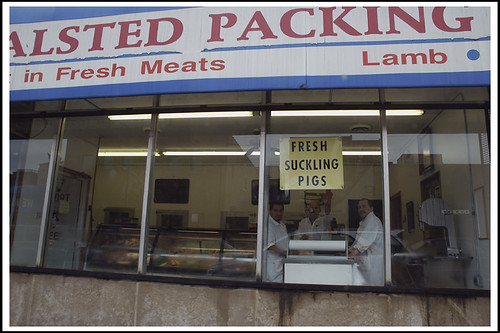
Who says the Bush administration respects the sanctity of life?
After more than six years of wrestling with the question of whether meat and milk from them are safe to eat, the Food and Drug Administration is expected to declare as early as next week that they are.
The FDA had asked producers of cloned livestock not to sell food products from such animals pending its ruling on their safety. It isn't clear whether the FDA will lift this voluntary hold.
While many consumer groups still oppose it, the FDA declaration that cloned animal products are safe would be a milestone for a small cadre of biotech companies that want to make a business out of producing copies of prize dairy cows and other farm animals—effectively taking the selective breeding practiced on farms for centuries to the cutting edge.
[From FDA Set to Say Food, Milk From Cloned Animals Are Safe - WSJ.com]
yummm, yummm, soylent green, baby.
"Whole Foods Market is committed to providing consumers with clone-free products," says Margaret Wittenberg, global vice president of quality standards and public affairs for grocer Whole Foods Market Inc. "The lack of effective governmental oversight and tracking could mean consumers will lose the ability to choose clone-free products."Our only hope seems to be with EU regulators putting the kibbosh on franken-food.
The European Food Safety Authority, the European Union's version of the FDA, will likely deliver its initial assessment on food from cloned animals next week, but the final decision won't come for several months. In addition, a special commission called the European Group for Ethics is conducting its own studies on the question of whether cloning is inhumane.(Digg-enabled link to complete article here)
U.S. food companies could face more trouble from European Union regulators and consumers, who are unlikely to respond favorably to the idea of eating cloned animals or their offspring. According to a recent poll, 55% of Italians think the EU should ban food made from cloned animals.
The EU already bans most meat imported from the U.S. because it's often raised using hormones. (It imports only $70 million worth of meat a year from the U.S.) Similarly, trade rules allow the EU to ban the import of cloned animal food if it's for health and safety reasons.
